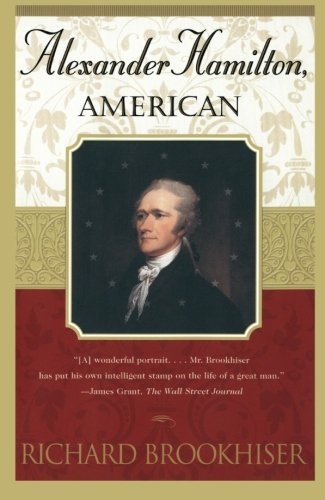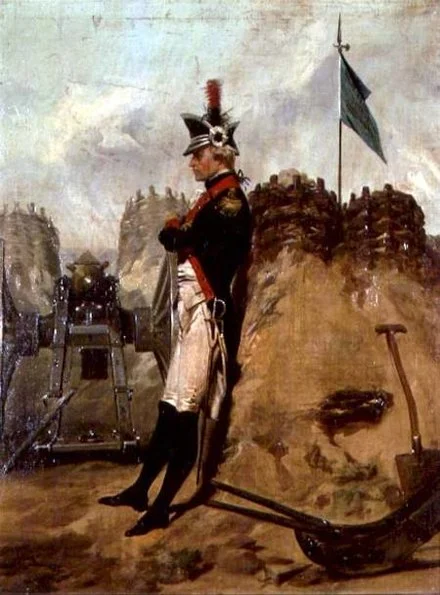Federalist #9 - Alexander Hamilton - Federalist Fridays
In Federalist #9 Alexander Hamilton discusses the suppression of rebellions.
Additionally, Hamilton rebuts the idea that Republican Government can only work for small nations.
Furthermore, he outlines the ideas of Montesquieu relating to ratification of the Constitution.
If you have missed any of our Federalist Friday articles, see the list here.
Federalist #9
Alexander Hamilton
November 21, 1787
The Union as a Safeguard Against Domestic Faction and Insurrection
Although it has been a week since our last installment of Federalist Fridays, Paper #9 was published just one day after #8.
Again, Alexander Hamilton pens the article, this time primarily discussing (despite the title) why he believes a Union of the thirteen States would not be too large for republican government to succeed.
A large portion of Paper #9 is spent rebutting the ideas of Montesquieu, with asides concerning Separation of Powers and suppressing rebellions.
Greece and Italy
Hamilton opens up this Paper with a discussion of the failure of the Republics of ancient Greece and Italy.
Keeping with the title of the essay, he describes them as being held back due to, “the rapid succession of revolutions by which they were kept in a state of perpetual vibration between the extremes of tyranny and anarchy.”
Because of this, he concludes, critics of republican government might claim that only an authoritarian regime (or at the very least, a constitutional monarchy) could ever maintain order and provide citizens with a stable society.
Hamilton derides these critics by acknowledging how far political thought had come over the centuries. With the variety of Checks and Balances now in practice, he argues, the world was ready for a Republic.
The beginning of Paper #9 is strange because, almost to a man, none of the Founders would disagree with this point. Perhaps there were a few stragglers who would rather a limited Constitutional Monarchy, but for the most part this introduction seems to be an attempt to win readers to his point of view.
Montesquieu
Federalist #9 continues by turning its attention to Montesquieu.
Montesquieu was a French political philosopher well known to all the Founders. Passing away just two decades before the American Revolutionary War began, he promoted the idea Separation of Powers (as well as creating the word ‘despotism’).
Many Anti-Federalists during the Ratification Debates had been quoting Montesquieu’s proposal that a Republic could only work successfully for a nation which spanned a small territory and had a limited number of citizens. Hamilton counters this argument in several ways.
First, Alexander draws our attention to the fact that Montesquieu was speaking about territories which were drastically smaller than the contemporary sizes of the thirteen States. Anti-Federalists who were using this argument should, to avoid hypocrisy, be calling for a splitting up of the States into smaller bodies. No one was doing that.
Additionally, Hamilton argues that the idea of a Republic only working for a small nation was a selective reading of Montesquieu.He quotes the Frenchman to demonstrate his belief that the best way to protect these small Republics were to unite them into a larger Confederacy.
That larger confederacy was exactly what the Constitution was attempting to accomplish.
Internal Happiness
Hamilton, while still quoting Montesquieu, returns to the topic of internal insurrections.
He suggests that, should one of the States be taken over by rebels, the Confederation of States would be able to come to the rescue and return the government to its desired republican form. To further his point, Hamilton again quotes Montesquieu:
"As this government is composed of small republics, it enjoys the internal happiness of each; and with respect to its external situation, it is possessed, by means of the association, of all the advantages of large monarchies.''
This, in essence, is the theme of Federalist #9.
Anti-Federalist Arguments
An Anti-Federalist could argue this point fairly easily on three counts.
First, the Anti-Federalist could point to the Declaration of Independence and say, ‘When a government becomes destructive to these ends, it is the right of the people to alter or abolish it.’ Or, in other words, if a rebellion takes over a State government, it is the responsibility of the citizens of that State to correct the problem.
Second, they could ask what is to stop the Confederacy from suppressing a State that has not suffered from an internal rebellion.
Third, and perhaps most importantly, what happens if the Federal Government is the one that is getting rebelled against. Additionally, much like Great Britain just a decade earlier, what if the leaders of the Federal Government deserve to be thrown off?
A Peculiar Ending
Hamilton proceeds to end the Paper #9 on a very strange note.
He points out the faults in the Lycian Republic, mentions how Montesquieu claimed they were the perfect form of Government, and then slams Montesquieu’s ideas as an ‘erroneous theory.’
This is the last sentence of the essay and it is peculiar that he would refer to the very philosophy he quoted throughout as an ‘erroneous theory.’ Why bother arguing Montesquieu quotes with more lengthy Montesquieu quotes only to say that quoting Montesquieu is a waste of time?
Oh Hamilton, sometimes I just don’t get you.
Thanks for reading this article. If you’ve missed any Federalist Fridays you can get the list of past discussions here.
While there are several great biographies of Alexander Hamilton, I recommend ‘American’ by Richard Brookhiser. Brookhiser is one of my favorite authors so i highly recommend any of his books. Pick up a copy of ‘American’ through the affiliate link below.
If this is your first time reading, please subscribe to our email list for a new Founder every day.






